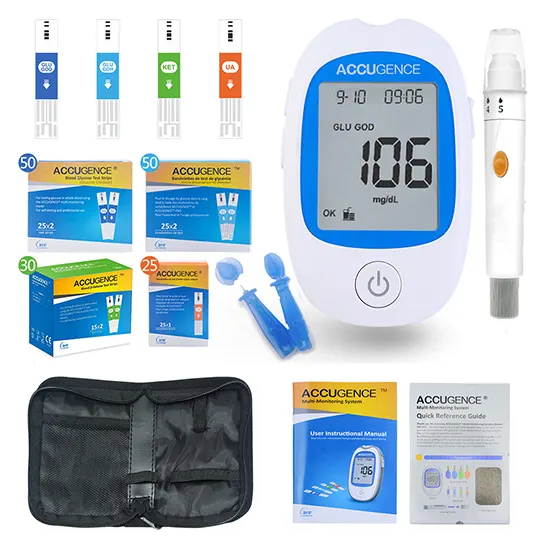acetaminophen/doxylamine/dextromethorphan (Coricidin HBP Nighttime Multi-Symptom Cold, Tylenol Cough and Sore Throat Nighttime, Vicks NyQuil Cold and Flu, Contac Cold + Flu Night Cooling Relief)
Classes: Antitussives, Non-narcotic Combos; Cough/Cold, Non-narcotic Combos
- Dosing and uses of Coricidin HBP Nighttime Multi-Symptom Cold, Tylenol Cough & Sore Throat Nighttime (acetaminophen/doxylamine/dextromethorphan)
- Coricidin HBP Nighttime Multi-Symptom Cold, Tylenol Cough & Sore Throat Nighttime (acetaminophen/doxylamine/dextromethorphan) adverse (side) effects
- Warnings
- Pregnancy
- Pharmacology of Coricidin HBP Nighttime Multi-Symptom Cold, Tylenol Cough & Sore Throat Nighttime (acetaminophen/doxylamine/dextromethorphan)
Dosing and uses of Coricidin HBP Nighttime Multi-Symptom Cold, Tylenol Cough and Sore Throat Nighttime (acetaminophen/doxylamine/dextromethorphan)
Adult dosage forms and strengths
acetaminophen/doxylamine/dextromethorphan
liquid
- (325mg/6.25mg/15mg)/15mL
- (500mg/6.25mg/15mg)/15mL
- (650mg/7.5mg/30mg)/30mL
- (650mg/12.5mg/30mg)/30mL
liquid capsule
- 325mg/6.25mg/15mg
Cough, Sore Throat, Rhinorrhea, Fever, Headache, Minor Aches & Pains
1-2 Tablespoons (15-30mL) PO q6hr; not to exceed a cumulative dose of acetaminophen 4 g/day and dextromethorphan 120 mg/day
2 capsules PO q6hr; not to exeed 8 capsules/day
Liquid formulation ingredients vary in dosage; follow specific brand instructions
Pediatric dosage forms and strengths
acetaminophen/doxylamine/dextromethorphan
liquid
- (500mg/6.25mg/15mg)/15mL
- (650mg/7.5mg/30mg)/30mL
- (650mg/12.5mg/30mg)/30mL
liquid capsule
- 325mg/6.25mg/15mg
Cough, Sore Throat, Rhinorrhea, Fever, Headache, Minor Aches & Pains
<12 Years Old
- Ask a pediatrician
>12 Years Old
- 2 Tablespoons (30mL) PO q6hr; not to exceed 120 mL/day
- 2 capsules PO q6hr; not to exeed 8 capsules/day
Coricidin HBP Nighttime Multi-Symptom Cold, Tylenol Cough and Sore Throat Nighttime (acetaminophen/doxylamine/dextromethorphan) adverse (side) effects
Frequency not defined
Angioedema
Laryngeal edema
Dizziness
Drowsiness
Pruritic maculopapular rash
Urticaria
Dry mouth, throat, and nose
Agranulocytosis
Leukopenia
Neutropenia
Pancytopenia
Thrombocytopenia
Thrombocytopenic purpura
Hepatotoxicity
Thickening of mucus in nose or throat
Anaphylactoid reaction
Warnings
Contraindications
Hypersensitivity
Asthma
Narrow-angle glaucoma
Symptomatic prostate hypertrophy
Bladder-neck obstruction
Stenosing peptic ulcer
G-6-PD deficiency
Severe hepatic impairment
Cautions
Acetaminophen hepatotoxicity possible in chronic alcoholics following various dose levels
Severe or recurrent pain or high or continued fever may indicate a serious illness
Acetaminophen contained in many OTC products and combined use with these products may result in toxicity due to cumulative doses exceeding recommended maximum dose
Acetaminophen: Risk for rare, but serious skin reactions that can be fatal; these reactions include Stevens-Johnson Syndrome (SJS), toxic epidermal necrolysis (TEN), and acute generalized exanthematous pustulosis (AGEP); symptoms may include skin redness, blisters and rash
Doxylamine may exacerbate angle closure glaucoma, hyperthyroidism, peptic ulcer, or urinary tract obstruction; xerostomia may occur
Do not take dextromethorphan for persistent or chronic cough associated with smoking, asthma, or emphysema, or if it is accompanied by excessive phlegm unless directed by a healthcare provider; dextromethorphan may slow the breathing
Pregnancy and lactation
Pregnancy category: C
Lacation: excreted in breast milk, use caution
Pregnant or breastfeeding patients should seek advice of health professional before using OTC drugs
Pregnancy categories
A: Generally acceptable. Controlled studies in pregnant women show no evidence of fetal risk.
B: May be acceptable. Either animal studies show no risk but human studies not available or animal studies showed minor risks and human studies done and showed no risk.
C: Use with caution if benefits outweigh risks. Animal studies show risk and human studies not available or neither animal nor human studies done.
D: Use in LIFE-THREATENING emergencies when no safer drug available. Positive evidence of human fetal risk.
X: Do not use in pregnancy. Risks involved outweigh potential benefits. Safer alternatives exist.
NA: Information not available.
Pharmacology of Coricidin HBP Nighttime Multi-Symptom Cold, Tylenol Cough and Sore Throat Nighttime (acetaminophen/doxylamine/dextromethorphan)
Mechanism of action
Acetaminophen: Blocks pain impulse generation peripherally and may inhibit prostaglandin generation in CNS; reduces fever by inhibiting hypothalamic heat-regulating center
Doxylamine: Competitively blocks histamine from binding to H1 receptors; significant antimuscarinic activity and penetrates CNS, which causes pronounced tendency to induce sedation
Dextromethorphan: Cough suppressant that acts centrally on cough center in medulla


